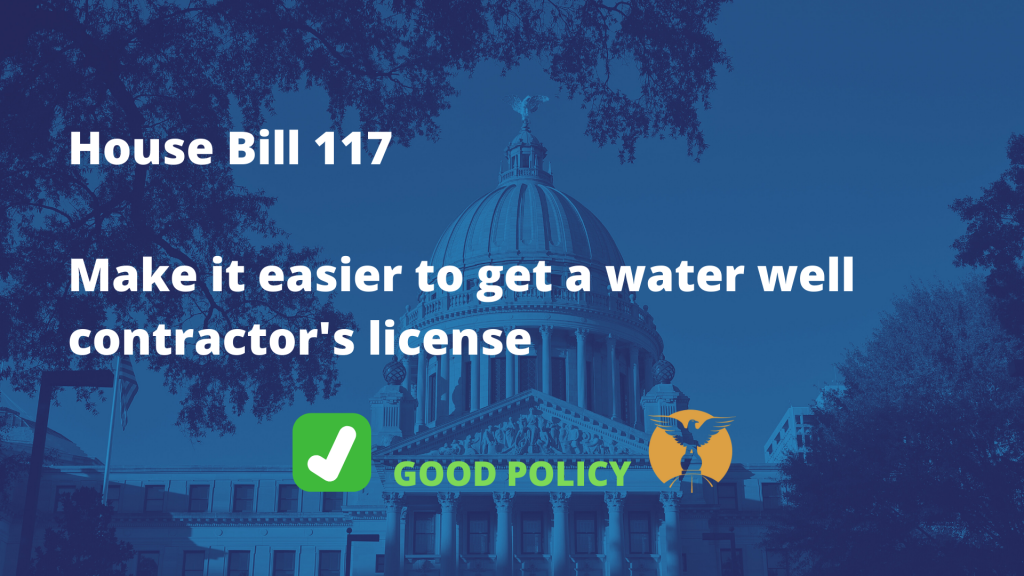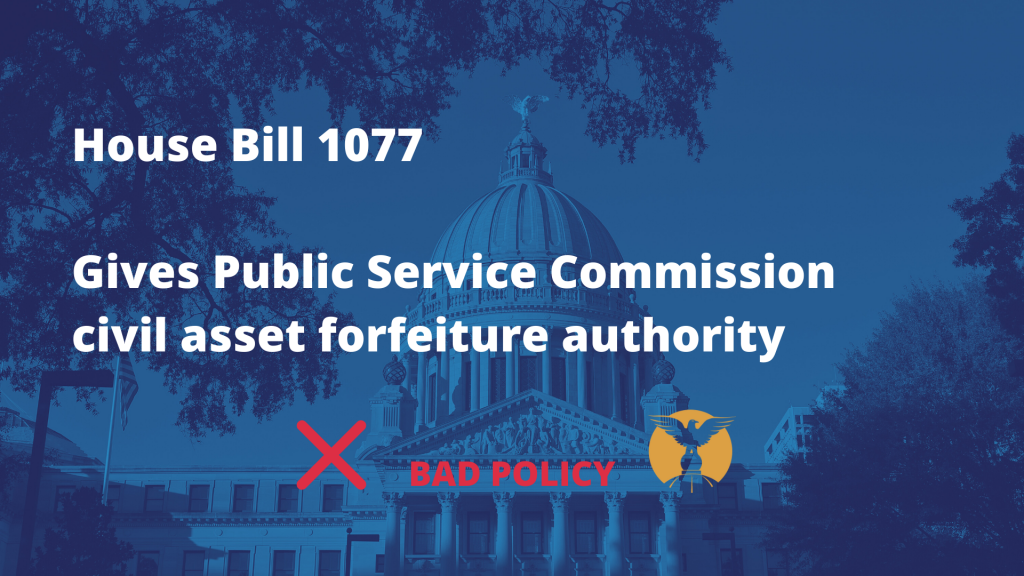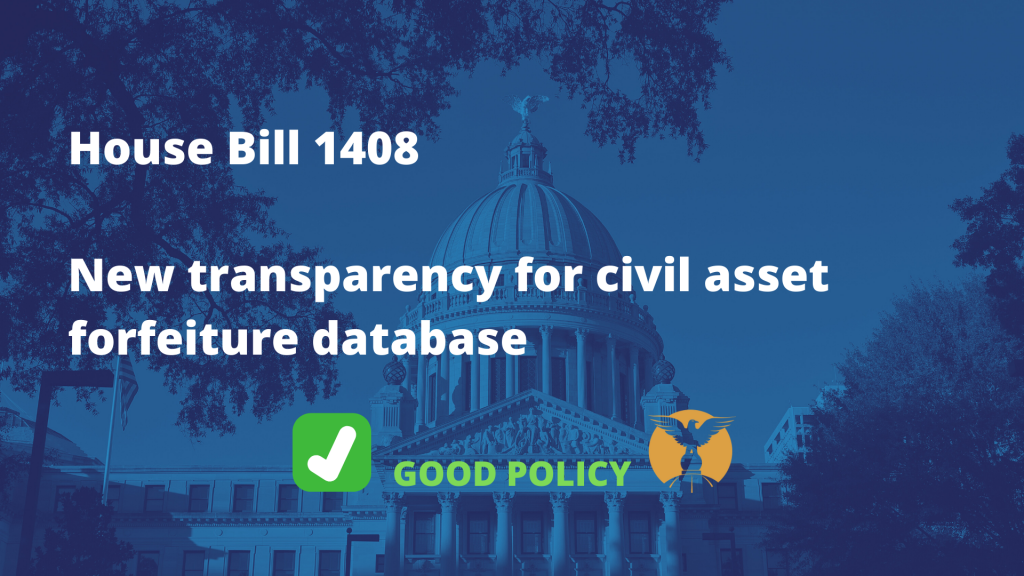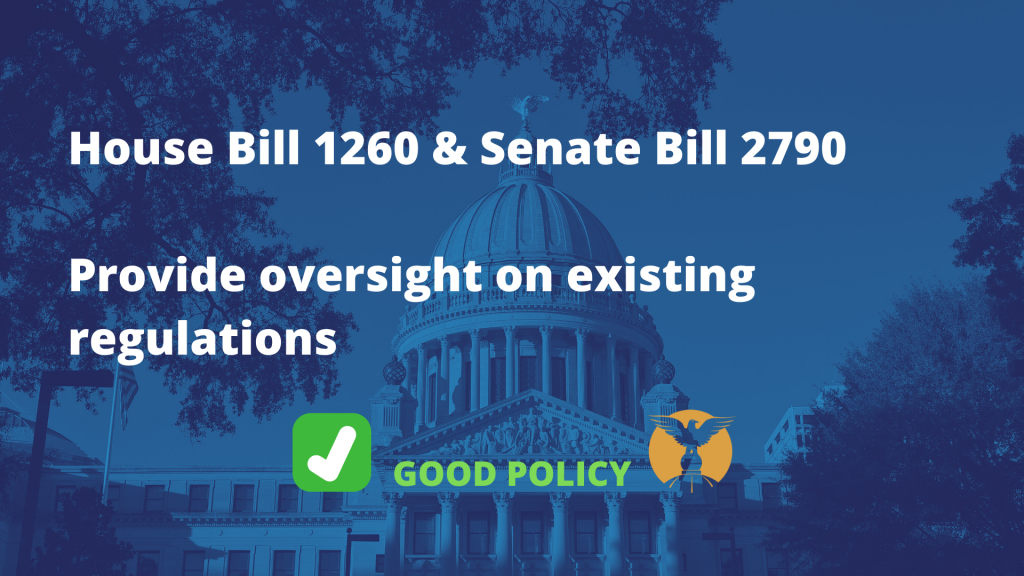There is a very popular phrase used around capitals all across the country these days. Surely, you’ve heard your legislator or a statewide official utter the words, “workforce development.”
It may be the two most commonly used words in state government today, after “fundraising event.” But what does it mean to develop? And who is being developed and by whom? It sounds innocent enough, but how do we actually develop workers for the future with the precious resources we have from taxpayers today? More vitally, how do we know what the future looks like exactly?
If what we mean by this innocuous phrase is to fully develop the child from age 5 to 18 through a comprehensive education system that renders students who are capable to go out into the world with the knowledge, skills, and competencies required to be productive citizens, then count me in. If we can educate our children in a way that bestows upon them the freedom to choose a path after high school from a variety of options, then I’m all for that.
If, however, we mean that we want to transform taxpayer-funded schools into job-training sites, then count me out. This is not the purpose of education.
We’ve heard a lot lately about the need to make computer science or coding an essential element of high school curricula, for example. This would not be the first time we’ve heard the clamor from companies to influence schools to meet their specific, current needs. In the early 1900s, the federal government provided funding to states in order to train students for manufacturing jobs. Such vocational training necessarily restricts the amount of time we can dedicate to the fundamental subjects like reading, writing, arithmetic, science, history, and government. Do we really want to produce graduates of our high schools who know less about reading, math, or U.S. government?
While computer science and programming are valuable endeavors and the tech sector has played an important role in our economy, the U.S. Bureau of Labor Statistics projects that only 3 percent of the roughly 171 million workers in the U.S. economy will hold computer or information technology jobs in 2028. The projections predict roughly 500,000 new jobs in the next 20 years in these fields.
In other words, the average state should see somewhere around 500 jobs per year. In a state the size of Mississippi, it works out to maybe a couple of hundred jobs per year. Don’t get me wrong, we need technology and innovation in Mississippi, and we should do all we can to encourage students to pursue computer science with their elective classes, particularly if a student has an interest in pursuing the field after graduation.
Government schools, and private ones for that matter, are about more than job preparation. They are also about developing minds, nurturing a love for learning, making informed citizens, reinforcing American values, and ensuring a continued inheritance of liberty and justice that lives on beyond ourselves. We have a duty to protect that purpose in our society.
It’s a greater responsibility than ensuring we produce workers for large employers in our state.
If we provide our students with a proper education, they will make wonderful employees in whatever field they choose. They might even start their own companies, become tech entrepreneurs, and create the next big company in Mississippi. Perhaps they’ll become lawyers, doctors, engineers, or farmers. Our job is to maximize their career possibilities, not to steer them towards one or another.
The next time you hear a politician speak of “workforce development,” make sure you ask what they mean. I just hope they don’t mean two other commonly used words around Mississippi – “federal grants.”
House Bill 117, sponsored by Rep. John Faulkner, would make it easier for a water well contractor to get a license.

HB 117 would remove the requirement that an applicant must present three affidavits to the Mississippi Department of Environment Quality’s examining committee to receive a license, in addition to being at least age 21, reasonable knowledge of the DEQ rules and regulations on wells, and have three years’ experience.
Securing an affidavit, much less three, requires the costly services of an attorney, which can be a substantial barrier to entry for someone wanting to enter the well drilling profession. Alabama, Arkansas, and Louisiana do not have the affidavit requirement.
Though just one license, this is a good step toward making it easier to earn a living in Mississippi.
Today, about 19 percent of Mississippians are in an occupation that requires a license. And this is particularly troubling in low and middle-income occupations. Mississippi currently licenses 66 of 102 lower-income occupations, as identified by Institute for Justice.
On average, licensing for low and middle-income occupations in Mississippi requires an individual to complete 160 days of training, to pass two exams, and to pay $330 in fees. Those numbers will vary depending on the industry. For example, a shampooer must receive 1,500 clock hours of education. A fire alarm installer must pay over $1,000 in fees.
The net result is a decrease in the number of people who can work. A study from the National Bureau of Economic Research found that occupational licensing reduces labor supply by 17 to 27 percent.
In Mississippi, the Institute for Justice estimates that licensing has cost the state 13,000 jobs. That represents two Nissan plants that could be created by reducing our licensing burden, and it wouldn’t require a dime in taxpayer incentives.
MCPP has reviewed this legislation and finds that it is aligned with our principles and therefore should be supported.
Read HB 117.
Track the status of this bill and all bills in our legislative tracker.
Senate Bill 2594, sponsored by Sen. Dennis DeBar, would gut the state’s Education Scholarship Account and kick hundreds of students out of the program.

In 2015, Mississippi became just the third state in the nation to adopt ESAs. This is an innovative approach to education that allows parents to select the best educational setting, rather than just a private school, for their children.
With an ESA, parents are able to use the funds that would otherwise be spent on public education to pay for private school tuition, tutoring, therapy, textbooks, online classes, and other educational services. With this program, parents are able to truly customize and create a specific education for their children based on their needs. And by every measure of significance, the program has been wildly popular. Hundreds of families are on the wait list. A 2018 review of the program showed 91 percent satisfaction by parents of ESA students.
ESAs have also brought a new meaning to accountability in education. Rather than test scores or government oversight that provide parents with little ability to do anything with the information they receive, parents now have the ability to evaluate the education their child is receiving and make the decision on whether they would like to continue with the current educational setting or make a different choice.
But SB 2594, a bill to extend the repealer on the ESA, would kick hundreds of families out of the small program and likely derail it to the point that it can never grow and only serve a few students in a public school-lite setting.
The proposed legislation would change the definition of “eligible school” to a state-accredited special purpose school, an accredited online learning program, or a private school with a special purpose program, cutting current options by more than half. Families who live near the state lines and have found a school in another state because there is not one nearby would also be kicked out of the program. The changes would also require private schools to administer testing for participating students, rather than trusting parents to make these decisions.
Last year, a clean bill to extend the repealer passed the Senate, but was never considered in the House.
MCPP has reviewed this legislation and finds that it violates our principles and therefore must be opposed.
Read SB 2594.
Track the status of this and all bills in our legislative tracker.
House Bill 1077, sponsored by Rep. Nick Bain, would give the Public Service Commission the authority to employ fraud and enforcement agents, who will have law enforcement powers to conduct civil asset forfeiture.

The new agents will investigate any alleged violations of the Mississippi Telephone Solicitation Act, Caller ID Anti-Spoofing Act, Automatic Dialing-Announcing Devices Act, Unsolicited Residential Telephonic Sales Calls Act and the rules, regulations, and general orders ofthe PSC.
But the powers of the new agents also include the ability to conduct civil asset forfeiture. This simply expands civil asset forfeiture in Mississippi at a time when the mood is to reform the process – rather than make it easier for the state to keep your seized property.
Civil asset forfeiture allows the government to take and keep property allegedly connected to crime – without ever convicting the owner of a crime. State and local law enforcement agencies can seize money, vehicles, and other property, sell that property, and use the proceeds to fund agency budgets.
The forfeited property does not even have to belong to the person suspected of criminal activity. While innocent owners may contest the forfeiture of their property, they must affirmatively prove that they did not have knowledge or give consent for their property to be used for illegal purposes. Proving a negative in a court of law can be quite difficult, and expensive.
Forfeiture cases are civil proceedings that lack many of the meaningful due process safeguards provided in criminal cases. There is a lower burden of proof, no presumption of innocence, no right to an attorney, and no preliminary hearing to ensure wrongfully seized property will be returned quickly.
MCPP has reviewed this legislation and finds that it violates our principles and therefore must be opposed.
Read HB 1077.
Track the status of this and all bills in our legislative tracker.
A bill in the Mississippi Legislature could help prevent a practice that some consider to be an abridgement of the Second Amendment
Under present law, one merely has to be in possession of a loaded firearm on a street, public road, highway, levee, or railroad to be charged with illegal hunting from a roadway without any clarifying language.
Senate Bill 2219, authored by state Sen. Joseph Seymour (R-Vancleave), would change existing law to require that one would have to have a firearm in their hands or on the external surface of a vehicle before a ticket for illegal hunting from a roadway can be issued. The bill would also add language that would protect those engaged in lawful action to protect their property or livestock.
The number of tickets issued, which can range in cost from $100 to $500, for those with their weapons in their trucks are on the rise statewide.
Seymour says it’s a Second Amendment issue and should be fixed. He also said most hunters caught in the dragnet just pay the ticket rather than fighting in court.
Brandon Smith of Hattiesburg was on the side of the road in the Desoto National Forest trying to get some of his dogs back. His hunting day had ended and two of his weapons, a rifle and a shotgun, were loaded and in his truck. An officer from the Mississippi Department of Wildlife, Fisheries, and Parks pulled over and ticketed Smith for hunting from the road.
In 2017, Josh Lloyd of Vancleave was ticketed for the same offense despite having his rifle in his truck. He’d pulled off the road to get some of his dogs as his hunting day was finished, with his rifle in the truck. A MWFP game warden saw him and ticketed him for the same offense.
Larry Perry, a Perry County native, was on his way to his camp in the early evening this year. Same story, different verse. He was trying to gather his dogs to head back to his camp with a loaded rifle in his truck. A MWFP game warden issued him a ticket even though he hadn’t taken his rifle out while he was parked.
Both Lloyd and Perry fought their tickets in court even though the cost of doing so, according to Lloyd, was more than the ticket itself. Lloyd said it was the principle of the thing that made him fight the ticket.
Seymour also has a bill that would clarify the standard by which conservation officers can search a vehicle or premises or make an arrest for violations of the state’s game laws. SB 2275 would put state conservation officers under the probable cause standard, which is the one that governs every other law enforcement officer in the state.
Probable cause is when there is a reasonable basis for belief by law enforcement that a crime has been committed, which can authorize a warrantless search or even an arrest.
Right now, the law only says for cause, which could be considered a lower standard.
House Bill 1408, sponsored by Rep. Chris Brown, will add numerous layers of transparency to the state’s civil asset forfeiture database.

On the state’s civil asset forfeiture database, law enforcement is required to provide the name of the agency that sized the property, a description of the seized item, and a copy of the notice of intent or petition for forfeiture.
This bill would require law enforcement to now provide: The date of the seizure, the place of the seizure, alleged criminal offense, crime for which the suspect is being charged, outcome of the criminal case, method of final forfeiture, value of property forfeited, circumstances of the search and seizure, type of controlled substance, the cost to the agency for this forfeiture case, and what the law enforcement agency used the property for if it was retained.
This would provide more information to the public on what is being forfeited by the state, and the details around the forfeiture.
MCPP has reviewed this legislation and finds that it is aligned with our principles and therefore should be supported.
Read HB 1408.
Track the status of this bill and all bills in our legislative tracker.
In this episode of Unlicensed, MCPP's Steve Wilson interviews FGA Research Director Nic Horton about Medicaid expansion and what it would really mean for the state.
House Bill 1548, sponsored by Rep. Joel Bomgar, would allow restaurants to permit pet dogs on their property if they choose.

Last summer, the issue of dogs in restaurants came into the spotlight when the Department of Health said this is illegal after the Clarion Ledger ran a story on pet friendly restaurants. MDH cites the Food and Drug Administration’s Food Code model, which is housed in the U.S. Department of Health and Human Services, for the prohibition. That model recommends prohibiting animals in food service establishments, save for service dogs.
This would write the policy of permitting dogs, if a restaurant owner chooses, into law. This would prevent the Department of Health from issuing blanket prohibitions on dogs in restaurants in the future.
MCPP has reviewed this legislation and finds that it is aligned with our principles and therefore should be supported.
Read HB 1548.
Track the status of this bill and all bills in our legislative tracker.
House Bill 1260, sponsored by Rep. Randy Boyd, and Senate Bill 2790, sponsored by Sen. John Polk, would allow the Occupational Licensing Review Commission to review the substance of any existing regulations.

Mississippi’s Occupational Licensing Review Commission, adopted in 2016, is a great step to reigning in the regulatory arm of the state, but is limited to new regulations only. This would give the Commission – which is made up of the governor, attorney general, and secretary of state – the ability to review any existing regulation and to act upon it if it does not:
- Increase economic opportunities for all of its citizens by promoting competition and thereby encouraging innovation and job growth.
- Use the least restrictive regulation necessary to protect consumers from present, significant and substantiated harms that threaten public health and safety.
Today, Mississippi has more than 117,000 regulations, which numerous empirical studies show to have a detrimental effect on economic growth. Mississippi also licenses 66 low-and-middle income occupations. According to a recent report from the Institute for Justice, Mississippi has lost 13,000 jobs because of occupational licensing and the state has suffered an economic value loss of $37 million.
This change would help the state continue the stated goals of decreasing our regulatory burden and increasing economic opportunities.
MCPP has reviewed this legislation and finds that it is aligned with our principles and therefore should be supported.
Track the status of this and all bills in our legislative tracker.
